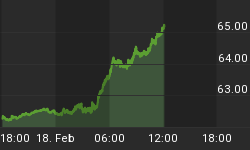This essay originally appeared at The Daily Reckoning.
The Perfect Storm dramatized the events surrounding a powerful nor'easter that raged over the Atlantic Ocean in 1991. The storm was the product of some fluky weather patterns, all of which converged to create a monster of a storm. The movie focused on the ill-fated travails of a small fishing boat, the Andrea Gail of Gloucester, Mass., which was lost at sea. It was a good movie, I thought. You could almost smell the fish and salty sea air and feel its cold dampness on your skin.
Probably in part due to the success of that film, we commonly use the phrase "perfect storm" these days to describe a combination of events which, taken individually, would have been far less powerful.
The idea of a "perfect storm" comes to mind when I think about the world's need for new electrical power grids.
I recently wrote to you, dear reader, about the pressing issues facing the North American power grid. Blackouts already occur about once every four months on average in the U.S. And that includes only those blackouts that affect at least half a million homes.
Of course, it's more than just a problem for those of us in North America. Power shortages exist in markets all over the world. That's one of the things that make this so fascinating - and which bring to mind the idea of a perfect storm.
If it were just the U.S. and Canada, perhaps that would not be such a powerful investment theme. But it's the combination with other parts of the world that give it an out-sized feel. Just adding China alone to the mix makes quite a difference.
I recently finished a book titled From Wall Street to the Great Wall, which further brings home this point. "Electrical power shortages are chronic today" in China, the authors note. "Blackouts are not uncommon, and manufacturing is affected directly."
Later, the authors quote a story from the Guardian: "China is on the biggest power plant building spree the world has ever seen." Hydroelectric dams, coal-fired generators and nuclear facilities sprout like weeds throughout China. "The equivalent of Britain's entire electrical output is being added to the capacity of the country's national grid every two years."
Really, the power story is only part of a bigger thread. The more you look into this sort of thing, the more you find that it is about more than just power (or just water, for that matter). It's a combination of all of these things. What we're talking about is infrastructure. Admittedly, infrastructure is an ugly four-syllable word that leaves a lot of room for interpretation. As with pornography, you know it when you see it.
India, often paired up with China in these kinds of stories, has its own infrastructure problems. Wandering cows in the middle of pockmarked roads is only one of them. So notes The Wall Street Journal: "The nation's capital is bedeviled by the same sort of cramped airports, rough roads and frequent power outages that recall the darker days (often literally) of China's own economic opening."
These are the headline cases. At the margins, though, you see similar trends in smaller emerging markets. All of it is more fuel for the perfect storm. Take a look at Africa.
There is an old joke told in many parts of Africa. It goes like this: "What did we do before we used candles?" Answer: "We had electricity." War, poor management and under-investment have done their usual thing. And while the infrastructure of Africa crumbles, the population has tripled since the 1960s.
Investment dollars, though, are trickling back to Africa. There is the promise, for example, of the great Congo River. Harnessed, it could generate over 40,000 megawatts of electricity. That's more than all of what South Africa produces today. Given a decent power station and linked to a modern power grid, the Congo River could supply power Africa needs for a long time.
Congo is typical of much of Africa. At Inga, Congo, there are two hydropower stations. The more modern one has eight hydroelectric turbines. However, years of neglect have left only three working. The Dark Continent - a term used originally to describe unexplored Africa - truly earns its name.
China has taken a big interest in Africa in its quest for natural resources - in particular, oil. The Chinese have already committed $10 billion in infrastructure projects. They've already built roads, railways, ports and more in Africa. China's approach to Africa is a pragmatic one.
When the dollars don't come from China, the World Bank or other places abroad, they come from within. For example, in South Africa, investment in infrastructure is a top priority. The government plans to spend $49 billion on roads, ports and power plants over the next three years.
This is an admittedly brief look at Africa. I could also tell you similar stories about the Middle East. Or I could talk about Southeast Asia (in particular, Vietnam and the Philippines). All of them plan to raise, or have raised, billions and billions of dollars for building the basics - things like power grids. It's all part of the perfect storm I see shaping up in the world's electrical power systems.
P.S. To the universal and coldly pragmatic question of "So what?" I offer you a practical way to take advantage of such trends in my latest issue of Capital & Crisis. To find out how you can subscribe to Capital & Crisis at a special discount, click here: $20 Off Capital & Crisis - For a Limited Time Only! http://dailyreckoning.com/Sub/DRWGFST.html















